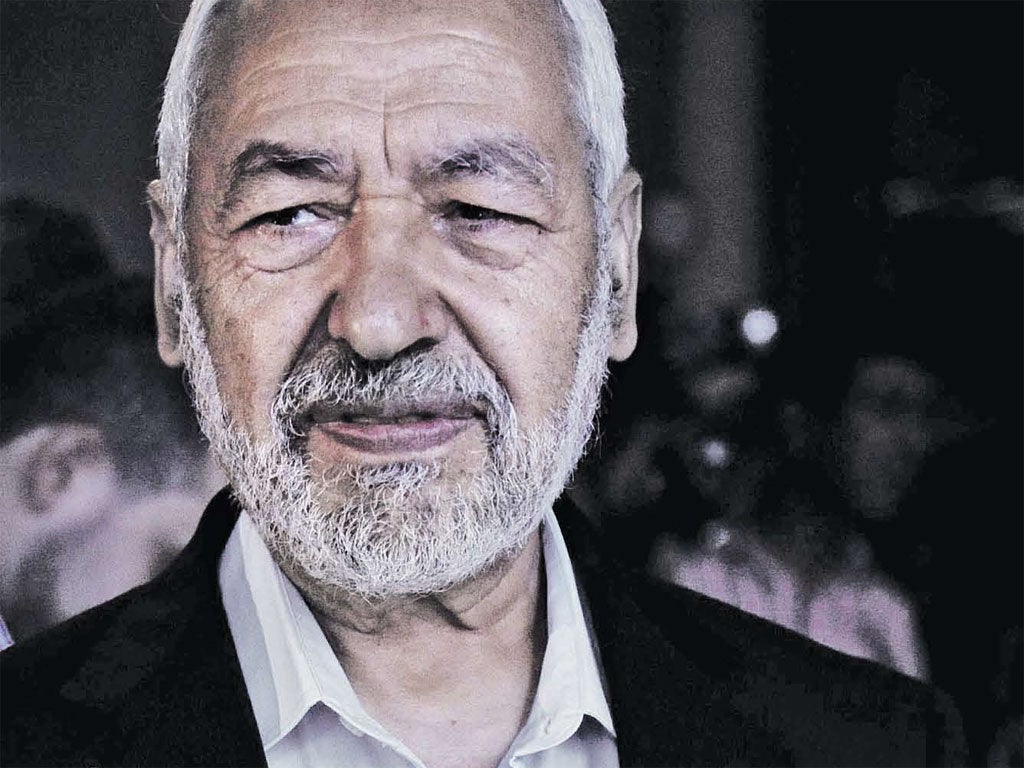Europe must let us tame violent extremists through democracy
The leader of the North African country's largest political party talks to Robert Fisk

Your support helps us to tell the story
From reproductive rights to climate change to Big Tech, The Independent is on the ground when the story is developing. Whether it's investigating the financials of Elon Musk's pro-Trump PAC or producing our latest documentary, 'The A Word', which shines a light on the American women fighting for reproductive rights, we know how important it is to parse out the facts from the messaging.
At such a critical moment in US history, we need reporters on the ground. Your donation allows us to keep sending journalists to speak to both sides of the story.
The Independent is trusted by Americans across the entire political spectrum. And unlike many other quality news outlets, we choose not to lock Americans out of our reporting and analysis with paywalls. We believe quality journalism should be available to everyone, paid for by those who can afford it.
Your support makes all the difference.When Rached Ghannouchi met Zine el-Abidine Ben Ali – before Mr Ghannouchi wisely exiled himself to London as an enemy of Tunisia's dictatorship – a very odd thing happened. "He didn't look me in the eye," Mr Ghannouchi said. "They brought coffee for us. I was talking and he was silent and listening, then he surprised me. He switched the coffee cups round. He gave me the coffee that he had, and took the coffee that I had, saying: 'Did you have some doubt about the coffee?' But this never crossed my mind! So I switched the coffees back again and took the one I was originally given."
It must have been the first time a dictator thought his guest feared being poisoned. And at this very moment in our conversation, a lady entered Mr Ghannouchi's office with cups of coffee. Don't switch the cups, I warned him. The point was not lost. But Mr Ghannouchi is not a naturally humorous man and he spends a lot of his time these days trying to persuade his antagonists that – as founder and leader of the country's largest party, Ennahda – he doesn't want an Islamist state in Tunisia. Only 24 hours earlier, a Tunisian law professor, Jamil Sayah, had written a long and thunderous article in La Presse de Tunis suggesting that the difference between Mr Ghannouchi and the majority of Tunisians was that "the head of Ennahda wants to Islamicise modernity while Tunisians want to modernise Islam".
I don't think Mr Ghannouchi had read the article – like most reports in Tunisian newspapers, it was at least 2,000 words long – but he went for the bait.
"He [Sayah] is the one who wants this," he said. "I don't believe Tunisians want to change Islam but they want to be modern while being Muslims. Islam is a modern religion, We don't need any surgery on Islam to make it modern. From the beginning, Islam was a pluralistic religion. From the beginning, Islam believed in freedom of religion and conscience, in the legitimacy of the state in a contract between the citizens and the state."
Then came an unexpected aside from a man who is often portrayed as a dangerous Islamist only waiting for the moment to turn his country into an Islamic republic.
"We understand democracy not just as a tool of government but also of education. I was in Paris in '68 and these were revolutionary times. But one of its leaders, Cohn-Bendit is now in the European parliament... There were examples of so-called extremists in Europe, the Red Army and Action Directe and through democracy they were able to be tamed and re-educated.
"So why can't we imagine that we also can tame our violent actors. Through democracy, they will be slowly part of this democracy, rather than destroying it. I always tell some of our friends in Europe that through democracy they were able to tame the beasts – so why don't you give us time to do the same with ours?
"This doesn't mean that we don't want to be firm with them. We must be firm with those who break the law… but some of our opponents, they want us to adopt the same methods as Ben Ali, opening prison camps, arresting thousands of people and using torture and kangaroo courts just because they belong to this group. We say that the law looks at people as individuals, not just as groups. If a driver doesn't stop at a red light, he should not be asked what his ideology is, but told he has broken the law."
Join our commenting forum
Join thought-provoking conversations, follow other Independent readers and see their replies
Comments